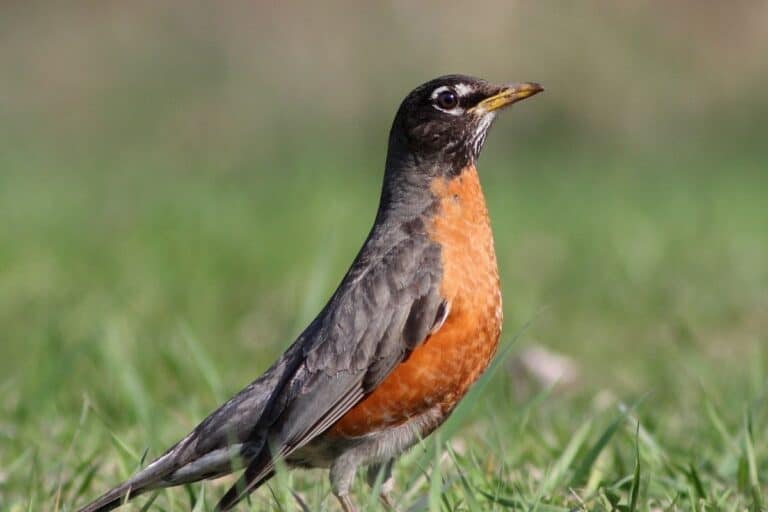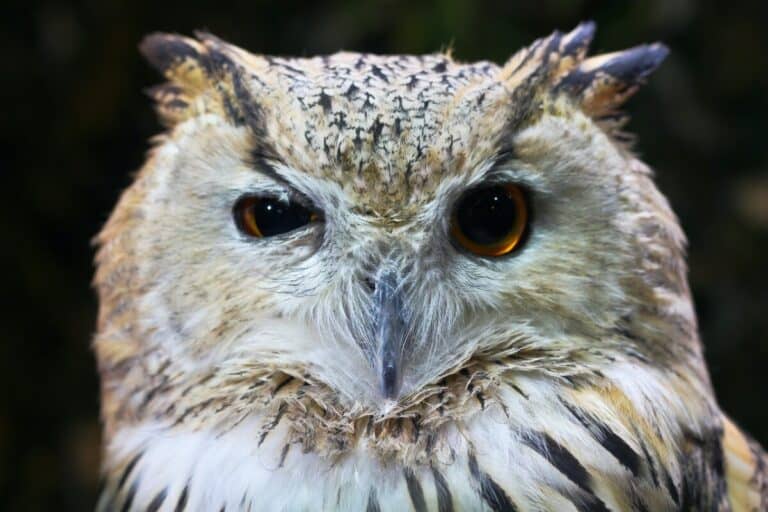Are Birds Scared of Humans? (A Surprising ANSWER!)
We’re reader-supported; we may earn a commission from links in this article.
We always see birds nervously flying away from us when we approach them. You may start to wonder: “are birds scared of humans?” I curiously conducted some research and found an answer to the question! Here’s what I found:
Most birds are scared of humans. This is because of their natural instinct to flee from an unfamiliar presence. However, the degree of scaredness varies between bird species, individual birds, and different human exposure. Urbanized birds like pigeons are much less scared of humans than rural birds.
Now, if you read on, I will highlight the variation in the scaredness of birds to human presence and explain some reasons why it is so and why not. Read on for more:
Are Birds Scared of Humans? (FULL Answer)
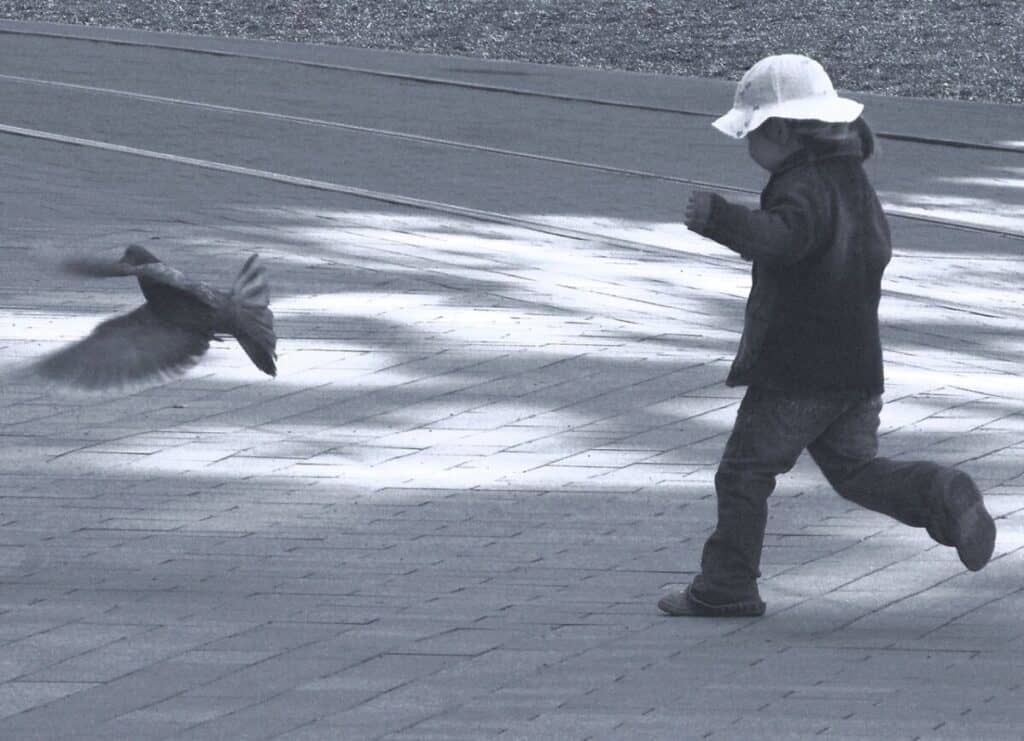
Birds are indeed scared of humans. And there’s lots of reason to be so! You may have noticed how skittish birds like pigeons either run away or fly away when you approach them.
Here’s the typical situation where birds choose to flee when encountering humans!
Notice how one bird flies and the rest follow suit?
Here’s something interesting that scientists found: Experts have discovered if one bird is showing signs of fear within a group, other birds will also have higher stress hormones (corticosterone) released in their bodies too. [1]
Papini et al.
This means that if you were walking next to a group of birds if one starts to get fearful, it will actually influence others to be afraid of you (humans) as well!
Most birds are scared of humans. This is because of their natural instinct to flee from an unfamiliar presence. However, the degree of scaredness varies between bird species, individual birds, and different human exposure. Urbanized birds like pigeons are much less scared of humans than rural birds.
Look, birds are even scared of kids in this video!
Now, we have to question WHY birds are scared of humans. Let’s find out in the next section!
Why Are Birds Scared of Humans?
We need to figure out WHY these birds are scared of humans because this curiosity is killing me. I did some research and here are 2 main reasons:
1) Humans Induce The Fight or Flight Response In Birds
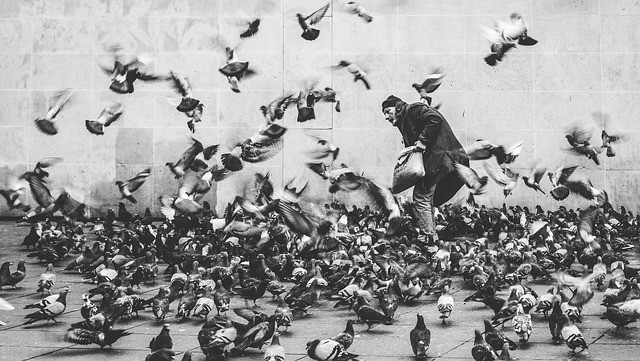
Birds, like all other animals, have a natural instinct for what’s called a fight-or-flight response. (including we humans!)
This response helps to keep birds out of danger and survive in the harsh natural environment outside by allowing them to choose between either a fight or a flight response when encountering a potential threat.
Basically a fight-or-flight response (AKA Acute Stress Response) is the physiological reaction of an organism to a situation that is potentially threatening and stressing.
In response, they can choose to either fight or flee, and this is brought about by the release of specific hormones in their bodies. This applies to birds, animals, and even humans!
The decision to make a fight or flight response depends on the nature of the bird, its exposure to humans, and other factors like its natural tolerance to threats. More on the fight and flight response below:
(a) The Flight Response
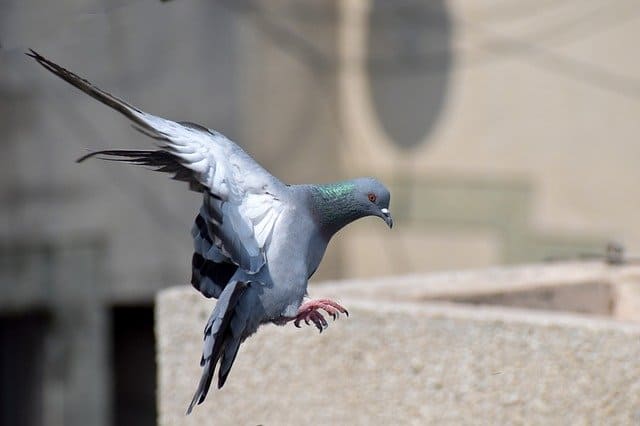
Most of the time, birds will choose to flee from humans. This could be because of the thousands of years that birds have lived alongside humans, leading them to perceive humans as threats!
(b) The Fight Response
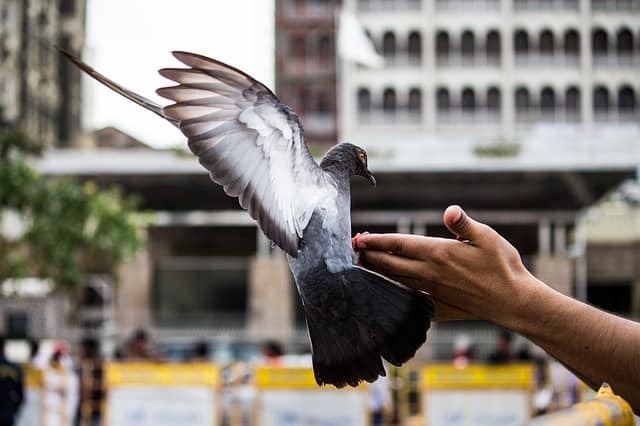
However, when birds are cornered, they will take the fight response and will be unafraid to take the threat head-on! Ever heard of red-winged blackbirds swooping at humans to defend their nests?
Here’s a video all about it:
However, this type of behavior only happens when their baby birds are threatened or if they feel threatened at their nesting site!
If you’re interested in finding out about how birds protect themselves, check out another blog post that I wrote here!
2) Humans Induce Freezing Behavior In Birds
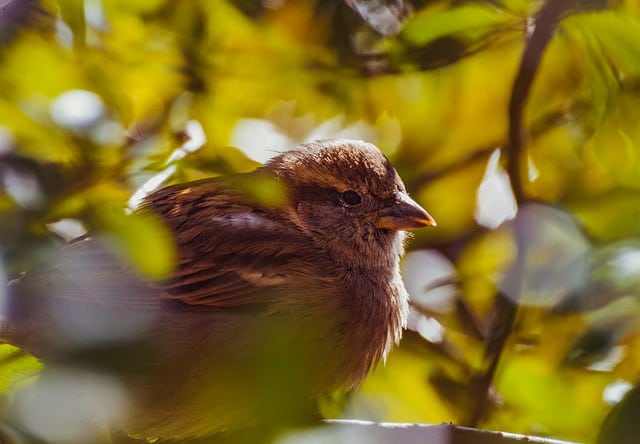
Have you ever encountered birds outdoors that immediately shush and stop moving when you walk close by?
Well, that’s evidence of freezing behavior in birds that are scared of humans! In fact, the freezing levels that birds experience are positively correlated with stress hormone (corticosterone) levels in birds.
Here’s an example of birds exhibiting this behavior when encountering humans:
My personal experience: I remember how when I was out birding, I clearly heard a Long-tailed Shrike in the bushes near me, but when I approached closer, they all stopped chirping and laid perfectly still!
I then realized that it’s how they avoid detection from potential threats (me)!
I also noticed that once one stopped chirping, the rest also follow suit, which confirms what scientists say about how one bird can influence another into being scared too.
Are All Birds Scared of Humans?
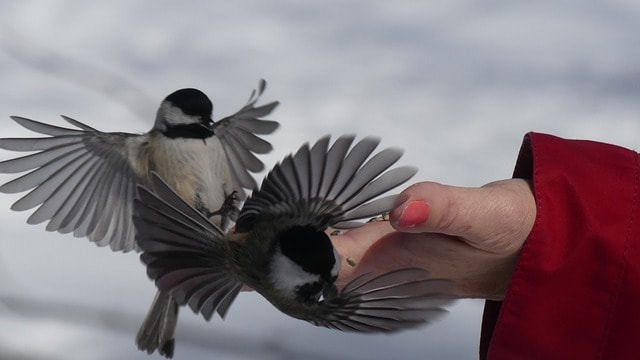
Not all birds are scared of humans. While most wild birds are scared of humans, pet birds and wild birds exposed to humans are not, but instead crave human affection. Examples of such pet birds include Budgerigars and human-exposed wild birds include Chickadees.
Not convinced? Here’s a really cool video of a man feeding birds that land on top of his head! Birds just aren’t scared of this man!
What Birds Are Not Scared of Humans?
Birds that aren’t scared of humans fall into two main categories: (1) pet birds and (2) birds exposed to humans frequently. Here’s more information on them:
1) Pet Birds
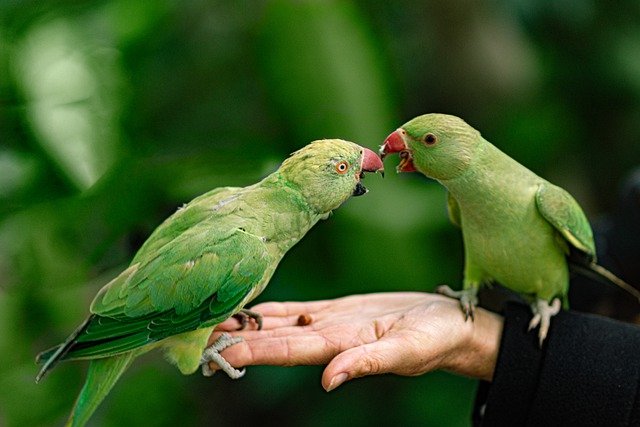
Common pet birds like budgerigars, cockatoos, macaws, parrots, and lovebirds have been bred over time to develop more human-tolerant temperaments.
Also, if these pet birds are brought up by a human owner over time, they may not be scared of human presence at all! They may even crave human companionship!
2) Birds Exposed To Humans Frequently
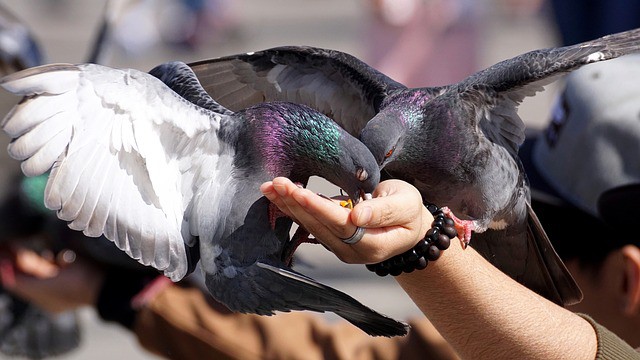
Many birds that live in urban environments are not scared of humans!
In fact, some of them rely on them to feed them. If you’ve seen the above video on the man feeding birds on his head, then you would know that some certain individual birds have lost the fear of humans entirely!
Here’s another guy with an unafraid bird on his head!
Another boy who managed to feed a bird atop his head!
Examples of Birds That Are Not Scared of Humans
- Pet Birds
- Cockatoos
- Budgerigars
- Macaws
- Parrots
- Wild Birds With Frequent Human Exposure
- Some Chickadees
- Some Sparrows
- Any birds with
Why Are Some Birds Not Scared of Humans?
Some birds are not scared of humans because of their adaptation to an urbanized environment and conditioned response to feeding by humans. Birds also tend to observe predators before learning that it is a threat, and subsequently, develop a fear toward predators and avoid them.
Many birds flee from humans, but there are some birds that are just NOT scared of humans! Let me explain why:
1) Urban Birds Are Used To Human Presence
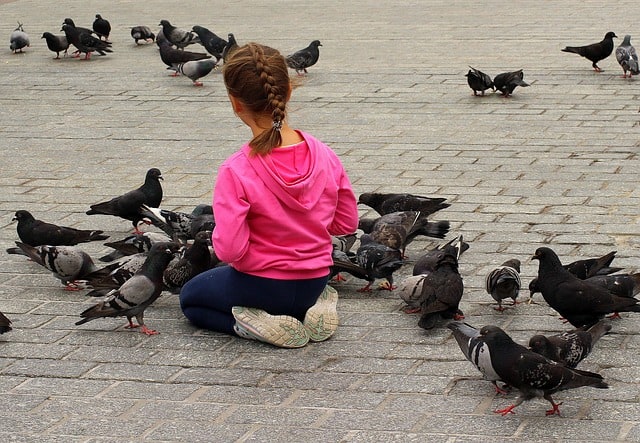
In recent studies by experts, they have found that birds that live in an urban environment (with humans) tend to have a shorter flight initiation distance (FID) than birds that live in a rural environment (woods, forest). [2]
The flight initiation distance is the exact distance between a human and a bird when the bird gets scared and takes flight.
Here’s a quick illustration of flight initiation distance (FID):
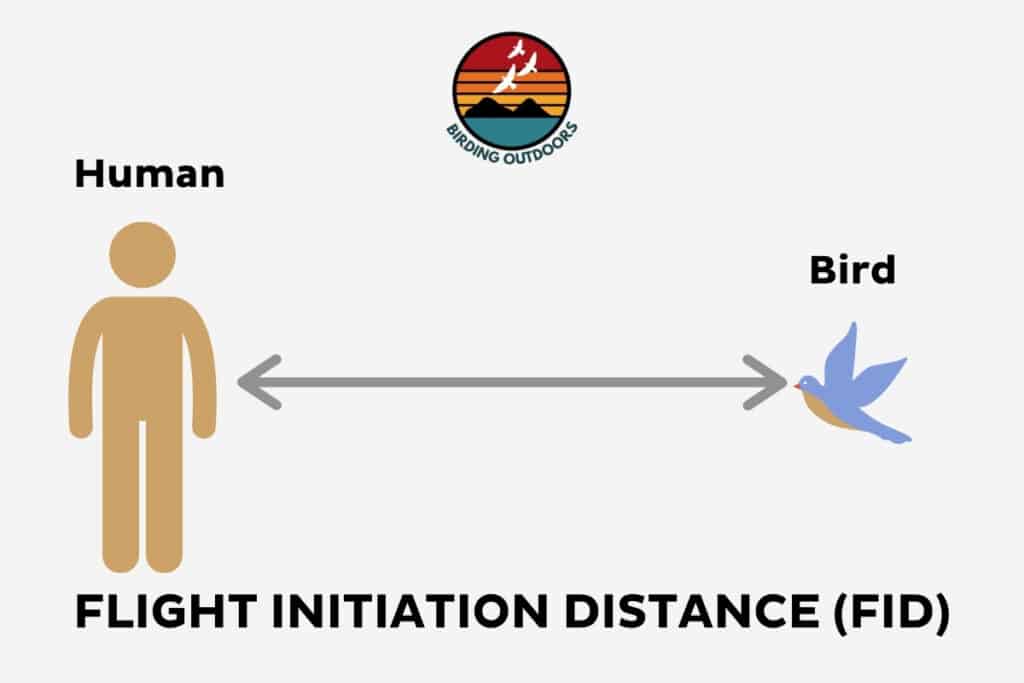
In simple terms, urban birds that feed in your backyard are less scared than the same species of birds living in rural environments!
2) Birds Are Conditioned To Feeding By Humans
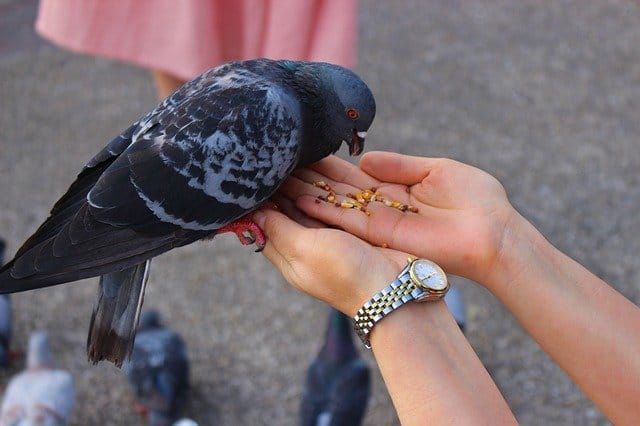
With more overlap with the living environments between humans and birds, it is inevitable that some people love to feed birds to attract more of them to their vicinity.
However, birds can slowly be conditioned to rely on the feeding of humans in their backyard or on the streets.
Over the years, certain birds have slowly lost their perception of humans as threats and more as a waiter at a ‘buffet’, bringing them food all the time!
Given the choice to hunt with their own efforts or to free-load off humans, I’m sure they’ll choose the easier latter option! Here’s a video of how birds got accustomed to feeding on human hands. (Start at 2:30)
3) Birds Need To Learn That Humans Are Potential Threats First
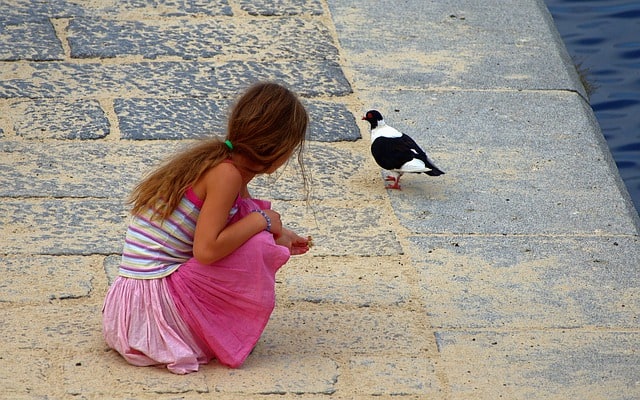
Some birds actually need to learn what is a predator and what is not before they develop a fear for one. This goes for humans too.
Bird experts have observed how gulls took the time to observe predators with a dead gull before learning to avoid the predator on the next encounter. [3] Clever, ain’t they!
Most birds actually never wait to observe, but rely on certain cues to tag potential predators as threats. These are called social alarms.
In birds, these social alarms are alarm calls and non-verbal cues like the flapping noise of wings taking off. These help birds to perceive danger and develop a fear of humans in birds. [4]
As a result, these birds will take more time to learn that humans can be dangerous and be scared of them. Here are some funny videos of birds disrupting sports games!
Why Do Birds Fly Away From Humans?
Birds fly away from humans because they perceive humans as potential threats. When one bird is afraid and gives alarm calls or flaps its wings to take off, other birds will also feel threatened and begin to fly away from humans. Rural birds are much more likely to fly away from humans than urban birds.
Birds generally perceive humans as threats and may begin to start running or hopping away before flying away from humans. However, there is a whole lot of biology that goes on before birds decide to fly away from humans:
When birds are stressed, their bodies begin to release hormones related to stress such as corticosterone.
Based on studies from experts, if one bird displays signs of being afraid, other birds within the group will also start to feel stressed by the release of corticosterone in their bodies too! [1]
Moreover, scientists have also discovered that birds also produce social alarms such as specific calls and flapping noises of their wings when they take off!
These are all factors that cause birds to fly away from humans. [4]
Bird experts have also found that because urban birds are exposed to humans more in their environment, they tend to fly away only at a closer distance than rural birds of the same species in a natural environment. [2]
Why Do Pigeons Run Away From Humans?
Pigeons run away from humans because it requires much less energy to run or walk than to take flight. Pigeons do not perceive humans as much of a threat until a certain distance, where they will feel threatened enough to take the energy-consuming choice of flight.
Here’s a video example of this happening!
Why Do Birds Walk When They Can Fly?
Birds walk away from humans because it requires much less energy to run or walk than to take flight. Some birds simply do not perceive humans as much of a threat until a certain distance, where they will feel threatened enough to take the energy-consuming choice of flight.
While this is the case for most birds, some birds like chickens, bird fledglings, and older birds tend to prefer walking to flying because they simply do not have the capability to fly well, yet or anymore respectively.
Why Are Birds So Skittish?
Birds are so skittish because they are constantly alert to potential threats that may come their way, whether that be natural or other man-made causes. Most birds have a wide field of vision, fast reflexes, and a high metabolism rate that allows them to respond quickly to threats and appear skittish.
What Do Birds Think Of Humans?
Most birds think of humans as threats. Wild birds see humans as threats and avoid them as much as possible because birds will instinctively flee from an unknown presence. However, pet birds think of humans as part of their own flock if they are well bonded enough.
Do Birds Fear Humans?
Birds do fear humans. Birds fear humans because of their natural instinct to flee from an unknown presence. However, birds that are used to human presence and domesticated pet birds are much less fearful of humans, even showing love and affection to humans.
Why Do Pet Birds Fly Away?
Pet birds fly away because they long to take to the skies and fly. As pet birds still retain their natural instincts to fly freely despite being domesticated, when they see other birds flying in the open sky, they will long to fly away too. Pet birds also fly away when they get distracted by happenings outside.
Final Thoughts
So now you know if birds are scared of humans, why they are, why some are not, looked at some examples through videos, and learned some science behind why birds fly away from humans. Good job, you!
I hope you’ve learned something from reading this article that you can now show off your new knowledge to your family and friends. Thanks for reading and happy birding!
References
- Papini, M. R., Penagos-Corzo, J. C., & Pérez-Acosta, A. M. (2019). Avian Emotions: Comparative Perspectives on Fear and Frustration. Frontiers in psychology, 9, 2707. https://doi.org/10.3389/fpsyg.2018.02707
- Rebolo-Ifrán, N., Carrete, M., Sanz-Aguilar, A., Rodríguez-Martínez, S., Cabezas, S., Marchant, T. A., Bortolotti, G. R., & Tella, J. L. (2015). Links between fear of humans, stress and survival support a non-random distribution of birds among urban and rural habitats. Scientific reports, 5, 13723. https://doi.org/10.1038/srep13723
- Kruuk, H. (1976). The biological function of gulls’ attraction towards predators. Animal Behaviour, 24(1), 146–153. https://doi.org/10.1016/s0003-3472(76)80108-x
- Hingee, M., & Magrath, R. D. (2009). Flights of fear: a mechanical wing whistle sounds the alarm in a flocking bird. Proceedings. Biological sciences, 276(1676), 4173–4179. https://doi.org/10.1098/rspb.2009.1110
My Recommended Birding Resources:
Hey there, Justin here!
Here’s a list of all my favorite resources, products, and brands I trust and love.
My Celestron Nature DX 8×42 Binoculars: It’s a great budget pair for beginner birders. Highly valued for its price! Read my review.
Safe Paint for Bird Baths Guide: Learn about non-toxic paint for painting bird baths.
Safe Sealers for Bird Baths Guide: Learn which sealers are safe for bird baths.
Safe Paint for Bird Feeders Guide: Learn what special care needs to be taken to paint bird feeders with the right paint.
Safe Paint for Birdhouses Guide: Learn about non-toxic paint for painting birdhouses. (Not the same as bird baths!)
Bird Identification Apps Guide: 2 of my favorite birding apps are Merlin Bird ID, and eBird Mobile! Merlin is great for tracking and identifying birds, and eBird Mobile is great for tracking the birds sighted when birding.
Check out my resources page for the full list of resources I recommend!

Justin Chia
Justin is the founder and author of Birding Outdoors. He is a Nanyang Technological University (NTU) alumnus with a Bachelor of Biological Sciences and a former data analyst.
Now, Justin runs the Birding Outdoors blog full-time, hoping to share his deep love for birds, birding, and nature with others.
To unwind, Justin enjoys gaming and reading.

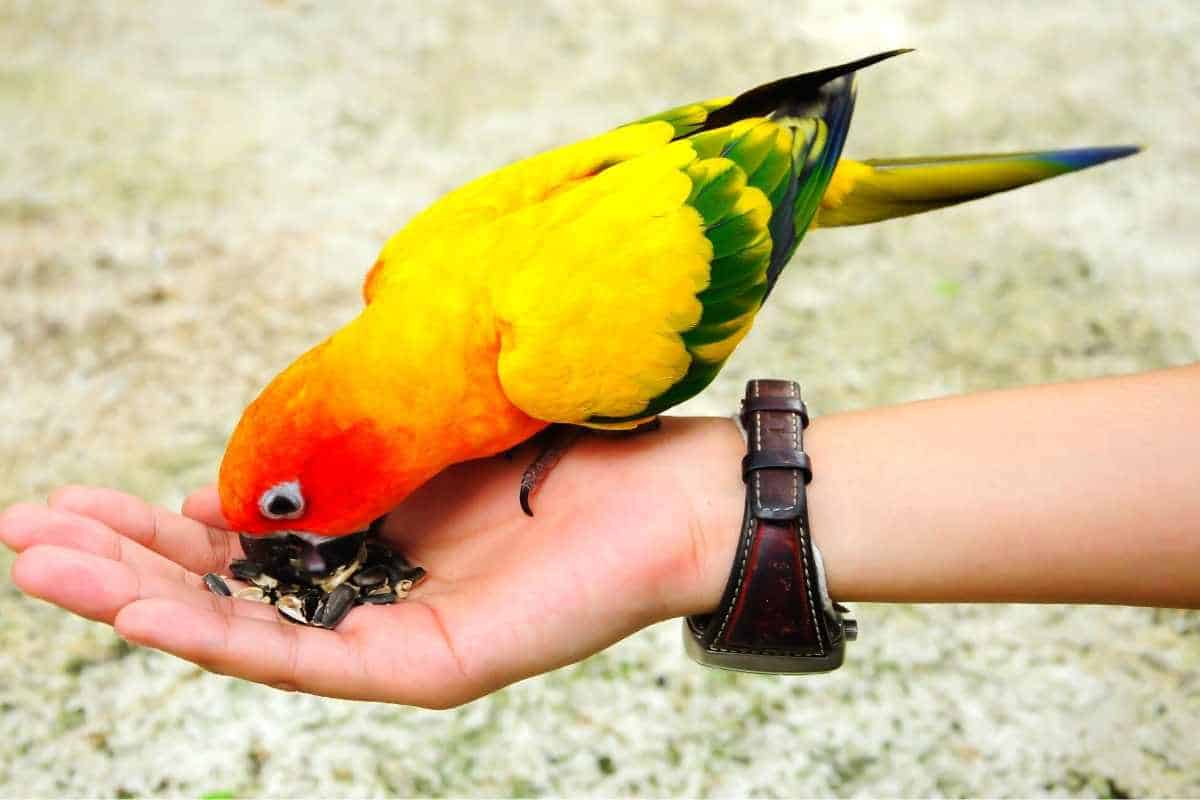
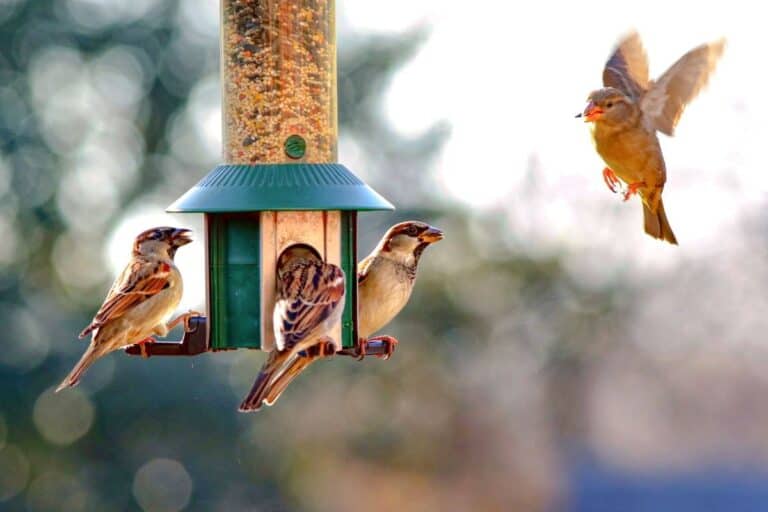
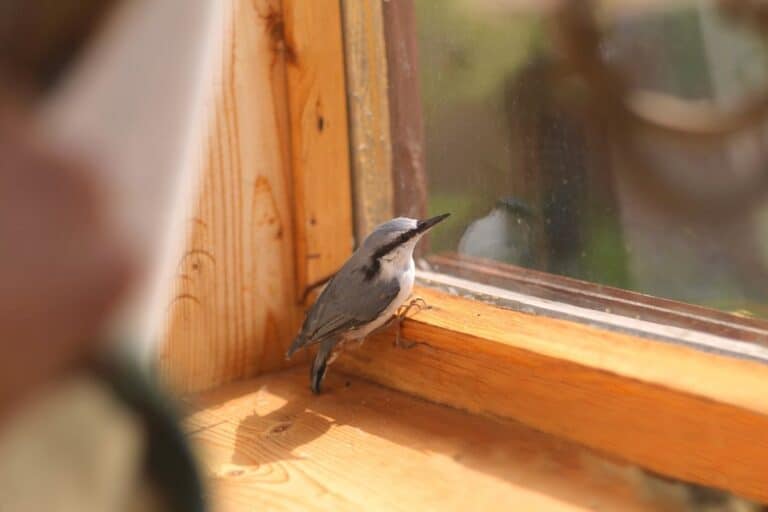
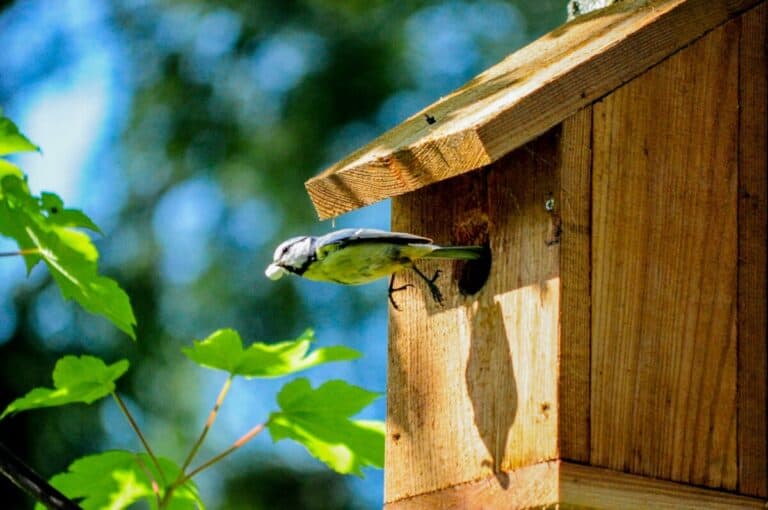
![How Deep Should A Bird Bath Be? [ANSWERED! + FAQs]](https://birdingoutdoors.com/wp-content/uploads/2021/10/bird-bath-deep-5-768x512.jpg)
